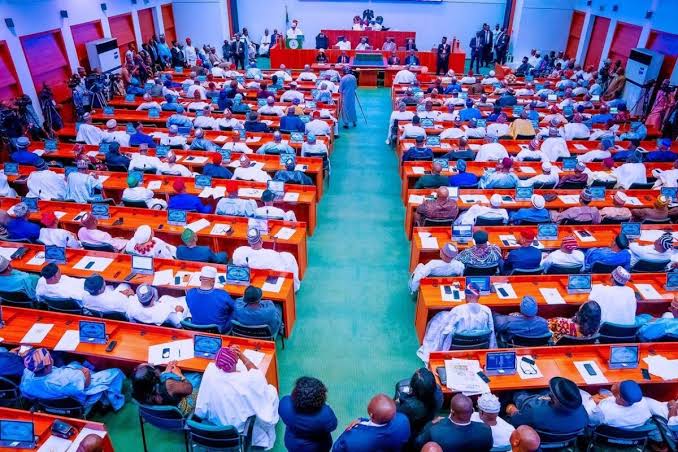Senate Set To Approve Tinubu's $2.2 Billion Loan Amid Bold Budget Moves
"Breaking: Senate Set to Approve Tinubu's $2.2 Billion Loan Amid Bold Budget Moves"
By Achimi Muktar
In a pivotal move for Nigeria's economy, the Senate is poised to approve President Bola Tinubu’s $2.2 billion loan request today. The funds, amounting to approximately ₦1.77 trillion, form a crucial part of Tinubu’s strategy to tackle the ₦9.7 trillion deficit in the ₦28.7 trillion 2024 national budget.
The President’s request, detailed in a letter read at Tuesday's Senate and House of Representatives plenary sessions, has been fast-tracked for consideration. Senate President Godswill Akpabio instructed the Committee on Local and Foreign Debts to assess the proposal and deliver a report within 24 hours.
Why the Loan Matters
Tinubu’s administration views the loan as a linchpin for executing its ambitious fiscal plans, including infrastructure projects and economic reforms. Akpabio confirmed its inclusion in the external borrowing plan, stating, “The Presidential request for $2.2 billion is already enshrined in the external borrowing plan for the 2024 fiscal year. The Senate must give it expeditious consideration.”
The funds are expected to supplement other fiscal measures aimed at addressing pressing economic challenges, including inflation, unemployment, and a sluggish growth trajectory.
A Broader Fiscal Strategy
Alongside the loan request, Tinubu submitted the Medium-Term Expenditure Framework and Fiscal Strategy Paper (MTEF/FSP) for 2025–2027. Key parameters in this fiscal blueprint include:
Oil price benchmark: $75 per barrel
Daily oil production target: 2.06 million barrels
Exchange rate projection: ₦1,400 to $1
GDP growth target: 6.4%
These figures form the foundation for the proposed ₦47.9 trillion 2025 budget. The Senate Committee on Finance, National Planning, and Economic Affairs has been tasked with reviewing the MTEF/FSP and reporting back within a week.
Strengthening Social Investment
In a related development, President Tinubu also submitted the Social Investment Programme Amendment Bill to the National Assembly. This proposal seeks to enhance transparency and efficiency in delivering social welfare programs to Nigeria’s most vulnerable citizens.
A key feature of the amendment is the introduction of the National Investment Register, a data-driven tool for identifying beneficiaries and ensuring resources are targeted effectively.
"The amendment will make our social and welfare programs more transparent, efficient, and impactful in addressing the needs of vulnerable Nigerians," Tinubu stated.
The Senate has referred the bill to relevant committees for further review, highlighting the administration’s commitment to leveraging technology to combat poverty and inequality.
Economic Implications
The Senate’s impending approval of the $2.2 billion loan marks a significant step in Tinubu’s broader economic strategy. Critics, however, have raised concerns about Nigeria's rising debt profile, urging caution in taking on additional loans.
The administration insists the loan is essential for bridging fiscal gaps and driving growth. With both chambers of the National Assembly signaling support, the approval seems inevitable—a move that could shape Nigeria’s economic trajectory in 2024 and beyond.
The coming days will reveal how these bold fiscal policies resonate with stakeholders and the broader public. As the Senate deliberates, all eyes are on Tinubu’s administration to deliver on its promises of economic stability and growth.





















